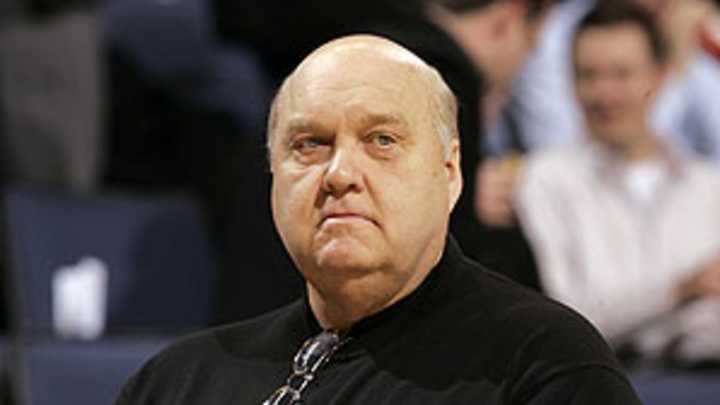Unconventional Rick Majerus made lasting impact on college hoops

When news of Rick Majerus' death Saturday night started to spread, an emptiness sunk in. It wasn't that Majerus' passing was altogether unexpected. He had been diagnosed in August with a serious heart ailment and was unable to coach at Saint Louis University this season. He also was extremely overweight and open about his lifetime of dietary and health issues, concerns that had forced him from the bench three times at previous jobs.
No, the hollowness and sadness came because college basketball lost perhaps the best hoops mind of his generation, and we're all a bit worse off because of that. As much as Majerus was able to share with fellow coaches, former and current players, and whichever media members he unloaded his brain upon, we collectively didn't get to drain Majerus' full reserve. There was a ton left in that think tank, and it will rest in peace with him.
Majerus' physical appearance, goofy quotes and the litany of crazy stories about him distracted from how good a pure coach Majerus was. He started at his alma mater, Marquette, and won. After a year as an NBA assistant, he moved to Ball State and won (including a 29-3 season). He went on to Utah, and won and won and won, racking up a 323-95 record in Salt Lake City and a national championship game appearance in 1998, before his health forced him out of the game during the 2003-04 season. He returned to the bench in 2007, taking over at Saint Louis, and won there, too.
Put it all together and Majerus racked up 517 career wins and a winning percentage of just over 70 percent, nestled snugly between Bob Knight and Frank Maguire on the all-time list. You'll never hear Majerus mentioned in casual conversation with those two, though, because of his personal quirks. It was impossible to see someone who looked and acted as he did and separate that from his professional genius.
While a Sports Illustrated feature in 2008 showed some of the rawness and bawdiness that was part of Majerus' character, he had many defenders of how he went about his basketball business. In The Associated Press story detailing his death, Saint Louis guard Kyle Cassity said "A lot of people questioned the way he did things, but I loved it. He'd be hard as hell on you, but he really cared." While there are stories of players who resented Majerus' tough tactics, this kind of response is much more what you get from his kids.
Majerus' caring -- about the game, his players and his ability to succeed in it -- may never have been clearer than when he changed his mind a week after taking the USC job in 2004. Still concerned about his health, Majerus gave up the gig, saying in a press conference that "I am not fit for this job by my standards." Majerus' standards are what made him one of the most successful and well respected coaches of the modern era. He was one of the few coaches that truly mattered when you were prognosticating on games, one of the few who gave his team a legitimate advantage over almost any opponent's head man.
In the end, Majerus stayed true to who he was -- on and off the court. He had a unique style and broke many molds of what today's college coach is supposed to be and look like. As Cassidy said in the AP story about playing for Majerus, "it was a unique experience, I'll tell you that, and I loved every minute of it."
Most of us felt the same way about watching and covering him.
